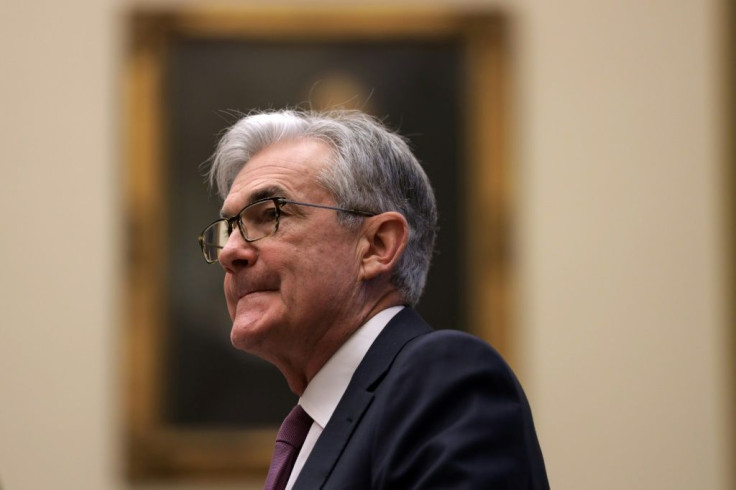Trump Economy In Trouble? Fed Pressured To Cut Rates Again After Stock Market Falls

The coronavirus outbreak has disrupted global supply chains and panicked investors, causing the worst week for U.S. stocks since the 2008 financial crisis. In response, the Trump administration is pressuring the Federal Reserve to lower interest rates to stimulate the economy.
“Out Fed should start being a leader,” Trump said at a news conference at the White House. “We should have the lowest interest rates. We don’t have the lowest interest rates. Our Fed rate is higher. You look at Germany, you look at Japan, you look at other countries: many of them have negative rates and we are not put in that position because of our Fed.”
Federal Reserve Chairman Jerome Powell signaled on Friday that the central bank would be open to lowering rates, depending on market conditions.
"The fundamentals of the U.S. economy remain strong," Powell said in a statement. "However, the coronavirus poses evolving risks to economic activity. The Federal Reserve is closely monitoring developments and their implications for the economic outlook. We will use our tools and act as appropriate to support the economy."
Former Fed Gov. Kevin Walsh wrote in an op-ed for the Wall Street Journal this week that the central bank should take “immediate action” and cut rates.
In addition to pressure on the Fed, the Trump administration is also considering tax cuts to stimulate the economy.
The coronavirus could dramatically slow down economic growth in 2020. Trump has counted on a strong economy in reelection bid but the coronavirus could complicate his chances.
"If the coronavirus epidemic materially affects US economic growth it may increase the likelihood of Democratic victory in the 2020 election," Goldman Sachs analysts wrote in a report published Wednesday night. Trump has previously blamed the poor stock market performance this week on the strong performance of Democratic presidential candidate Bernie Sanders, who Trump has labeled a “communist.”
Although the coronavirus has hurt international trade, the U.S. could possibly weather the storm. The economy experienced relatively strong growth in 2019, with GDP rising by 2.1% in the fourth quarter.
© Copyright IBTimes 2025. All rights reserved.




















